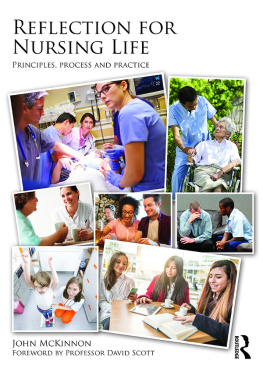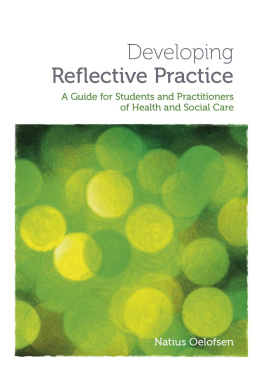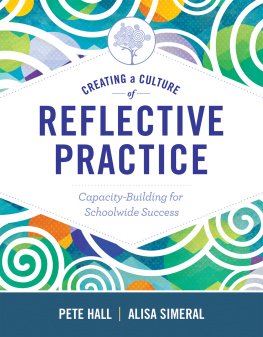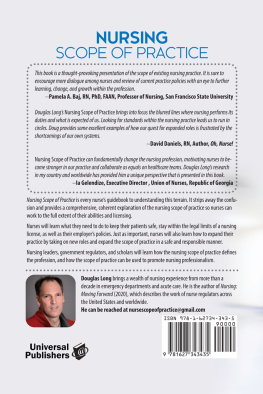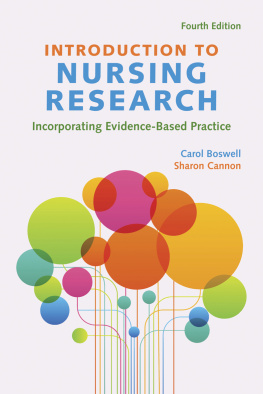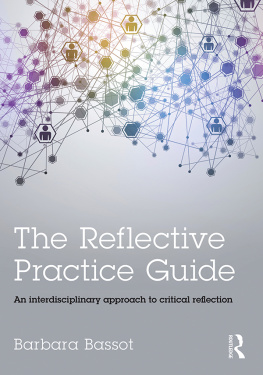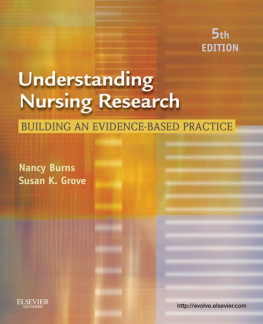
Reflection for Nursing Life
Over the past decades, reflection has taken centre stage in nursing education. However, it is easy to get stuck in a superficial cycle of storytelling and self-examination without getting any further insights into your own practice and abilities. Reflection for Nursing Life starts with a basic introduction to reflective practice and moves on to look at more critical perspectives, with guidance for reflecting on the complex realities of practice.
This accessible text is designed to support a deeper understanding of the value of reflection and its relationship with the needs of modern practice. Beginning with discussions of self-awareness and the reflective cycle, the book goes on to explore ideas about critical incidents, critical reflection models and transformational learning. It integrates cutting-edge neuro-scientific research and thinking about emotional labour and intelligence in healthcare into mainstream reflective practice, drawing on both new and established ways of guiding learning and professional judgment.
Reflection for Nursing Life includes numerous exemplar reflective narratives, diagrams and exercises to help the reader identify their strengths and weaknesses, whilst tips for overcoming weaknesses and developing strengths are also provided. This is the ideal text for nursing students and practitioners looking to improve their reflective practice skills.
John McKinnon is a Senior Lecturer in Nursing at the University of Lincoln, UK. He was a frontline practitioner for 20 years and has researched, taught and published on reflective practice and emotional intelligence which were the focus of his doctorate.
John McKinnons text is a comprehensive and highly readable exploration of the area. The use of stories enables the reader to consider their own practice and will appeal to a variety of health care professionals. The focus on resilience, humanity and engagement is both powerful and refreshing.
Carolyn Crouchman, Senior Lecturer, Advanced Health Care, Buckinghamshire New University, UK
Written with a strong blend of the theoretical and the practical, this book is an excellent resource for those who wish to enhance their reflective skills whilst understanding more fully the theoretical underpinning of such skills. Written in a learned but accessible manner, interspersed with anecdotes and stories, the book is useful to students, novices and more experienced staff. One of the strengths of the book is its early focus on the understanding of self as a foundation of effective practice, often a step in the reflective journey that is omitted in other texts. The opening chapter of McKinnons book emphasises the importance of self-awareness in becoming an effective reflector and acknowledges the importance of acknowledging ones own humanity. This important fact is a theme throughout the book, as is the necessity of a sense of self when undertaking reflective activity.
The book is distinct from many of the the other reflective texts in that it focuses on reflection in nursing life, acknowledging that one may still be a nurse, even when one is not actually doing nursing and these periods are often the times when reflection can take place. McKinnons approach to reflection is based upon principles, rather than on process, highlighting the belief that it should be part of everything nurses are, rather than another task to be completed.
I found this to be an extremely edifying book, which made me look at my practice and myself in a different way. Practitioners, educators and researchers will find this book a useful source of inspiration and information.
Professor Carol Haigh, Faculty Health, Psychology & Social Care, Manchester Metropolitan University, UK
Reflective practice is an essential part of nursing life and supports personal and professional development. John McKinnons thought-provoking and practical book offers new ways of thinking about this well-known concept. The use of practitioner narratives enhance the text and bring the associated theory to life. This book will support all health care professionals who want to develop their reflective thinking.
Dr Kirsten Jack, Senior Lecturer in Adult Nursing, Manchester Metropolitan University, UK
Reflection for Nursing Life
Principles, process and practice
John McKinnon

First published 2016
by Routledge
2 Park Square, Milton Park, Abingdon, Oxon OX14 4RN
and by Routledge
711 Third Avenue, New York, NY 10017
Routledge is an imprint of the Taylor & Francis Group, an informa business
2016 J. McKinnon
The right of John McKinnon to be identified as author of this work has been asserted by him in accordance with sections 77 and 78 of the Copyright, Designs and Patents Act 1988.
All rights reserved. No part of this book may be reprinted or reproduced or utilised in any form or by any electronic, mechanical, or other means, now known or hereafter invented, including photocopying and recording, or in any information storage or retrieval system, without permission in writing from the publishers.
Trademark notice: Product or corporate names may be trademarks or registered trademarks, and are used only for identification and explanation without intent to infringe.
British Library Cataloguing in Publication Data
A catalogue record for this book is available from the British Library
Library of Congress Cataloging in Publication Data
A catalogue record for this book has been requested.
ISBN: 978-1-138-78758-2 (hbk)
ISBN: 978-1-138-78759-9 (pbk)
ISBN: 978-1-315-76632-4 (ebk)
Typeset in Times New Roman
by Swales & Willis Ltd, Exeter, Devon, UK
Dedicated to Jon Robert, the son I always wished for.
From Dad.
John McKinnons book offers a new and exciting perspective on nurses professionalism. This is in stark contrast to the picture we have of nursing that we inherited from the 19th and early part of the 20th century, where the ideal model was that of detachment, compliance to the dictates of the expert (usually a male doctor), a fixed rather than changing view of how to behave, relatively low levels of education and training and above all a non-reflective view of the profession. Indeed, it was only with the greatest of difficulty that one could have called nursing a profession.
There are three models of nursing: craft, technician and professional. Craft knowledge has the following characteristics. It is rooted in practice and this rules out certain types of learning approaches. This means that imitation and scaffolding various attempts to perform the activities are key to the development of this type of knowledge. The teacher or facilitator is the expert practitioner and knowledge is derived from exposure to the performances of the expert. The expert is therefore not a skilled pedagogue but a skilled practitioner. The emphasis is on observing and imitating the practice. The justification for this is that the nature of the practice is better understood in these terms, that is, the learning object, becoming and being a good nurse, are craft activities.
The second of our models is the executive technician. This requires the nurse to perform in a particular way; to have, and be able to execute, a repertoire of pre-conceived actions. This is a rule-based activity and learning is understood as the assimilation of these rules and ways of enacting them, without recourse to critical reflection or situated understanding. The executive technician model recognises the value of research findings, and this means that it is not thought appropriate for nurses to interpret those findings for themselves. Nursing researchers generate findings which are then expressed as protocols for action, and the role of the nurse is to implement these protocols in the most efficient way they can. One consequence of this is that the knowledge which is being transferred lacks a sense of change, emergence, immediacy or relevance. This positions the learning object, these rules and protocols, outside space and time and effectively reifies it. The rules they follow are therefore not situation-specific or even sensitive to the particularities of the setting in which they are being applied.
Next page
